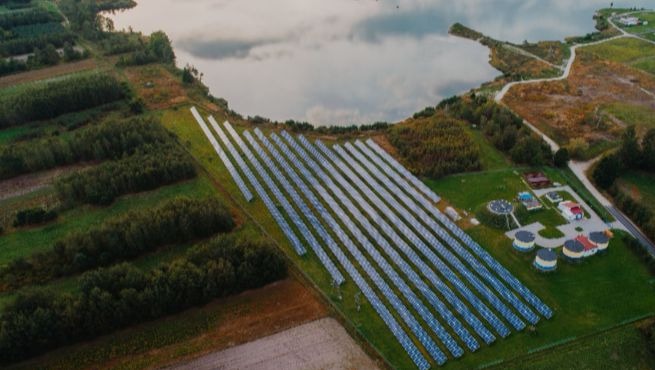Sustainability has always been unsustainable, except that might be changing

An unfortunate reality of life in Asia is that the region is a significant contributor to the environmental issues facing our world.
Here are a few examples:
- Four out of the five largest industrial fishing countries are Asian — China, Japan, South Korea and Taiwan — with Spain being the largest non-Asian contributor to overfishing.
- China, long the target of scorn from environmentalists over animal extinction and shark-fin farming, will eventually come to face a water crisis that has the potential to be remarkably destabilising.
- An artist in Indonesia recently chopped the acronym ‘SOS’ in an Indonesian palm forrest to highlight the country’s longstanding de-forestation issue.
As Asia becomes more and more wealthy, the region will need to come together to strategise how to grow in a more sustainable manner. The current growth path may be necessary for economic revival, but it’s not sustainable over the long-term.
This is why a deal announced today between Microsoft and Singapore’s Sunseap Group should be marked as a positive development in the world of technology, renewables and the environment.
As reported by Reuters, Microsoft will be purchasing 100 per cent of the energy developed by Sunseap Group for the next twenty years.
The energy will be used to help make its data centers more sustainable. It is also the company’s first renewables deal in Asia.
The reason the deal should matter is because it shows that if Asian companies build a solid renewables product, there are buyers that will support the company (in this case for two decades) and facilitate its growth.
In a world where fintech and e-commerce dominate the funding rounds in Southeast Asia, seeing a renewable company (granted, not a startup) sign a lifecycle-changing deal, should be heartening to the entrepreneurs who want to start a business and save the planet at the same time.
Also Read: Regulations should not stifle innovation, says MAS deputy MD Ong Chong Tee
Additionally, it’s important because it bucks the trend of Asian solar companies often finding themselves in a financial quagmire.
In November, Allard Nooy, the CEO of InfraCo Asia, an investment company that focusses on infrastructure, said only 45 per cent of solar companies are “bankable”, according to Eco-Business.
This means 55 per cent of solar companies cannot secure money through investment firms, banks or deals like today’s Microsoft news.
Nooy pointed to protectionist foreign direct investment laws in countries like the Philippines, but also noted that demand from the corporate sector could offset this lack of investment options.
In 2018, corporate social responsibility is a big deal, and for some companies it is the most important part of their branding. Notably, energy-guzzling tech firms are particularly keen to find paths towards sustainability.
The Microsoft-Sunseap deal highlights an immense opportunity for startups, SMEs and corporates alike. Environmental startups should look beyond investors, governments or banks and head straight for the welcome desks of the world’s largest corporations.
A report from the International Renewable Energy Agency optimistically says that in 2025 as much as 23 per cent of energy consumed in Southeast Asia could be sourced from renewables. The more cynical number is 17 per cent, which is still a notable increase from the 2014 number of 9.4 per cent.
Also Read: Rosy outlook for Vietnam’s ecosystem as startup funding deals double to 92 last year
Growth numbers like these present an opportunity for local businesses to become the “source of growth”. If 23 per cent of energy consumed in Southeast Asia will be renewable, somebody has to provide the energy.
What Sunseap proved yesterday is local companies can be the supply. The can build cool products and attract the attention of Microsoft. So why can’t another Southeast Asian company build a cool product and attract the attention of Amazon? Tencent? Alibaba?
Building sustainable products has long been an unsustainable venture but if the tea leaves are correct, entrepreneurs may (finally!) be in a position to take advantage.
—
The post Why the recent Microsoft deal should be an eye-opener for Asian entrepreneurs appeared first on e27.